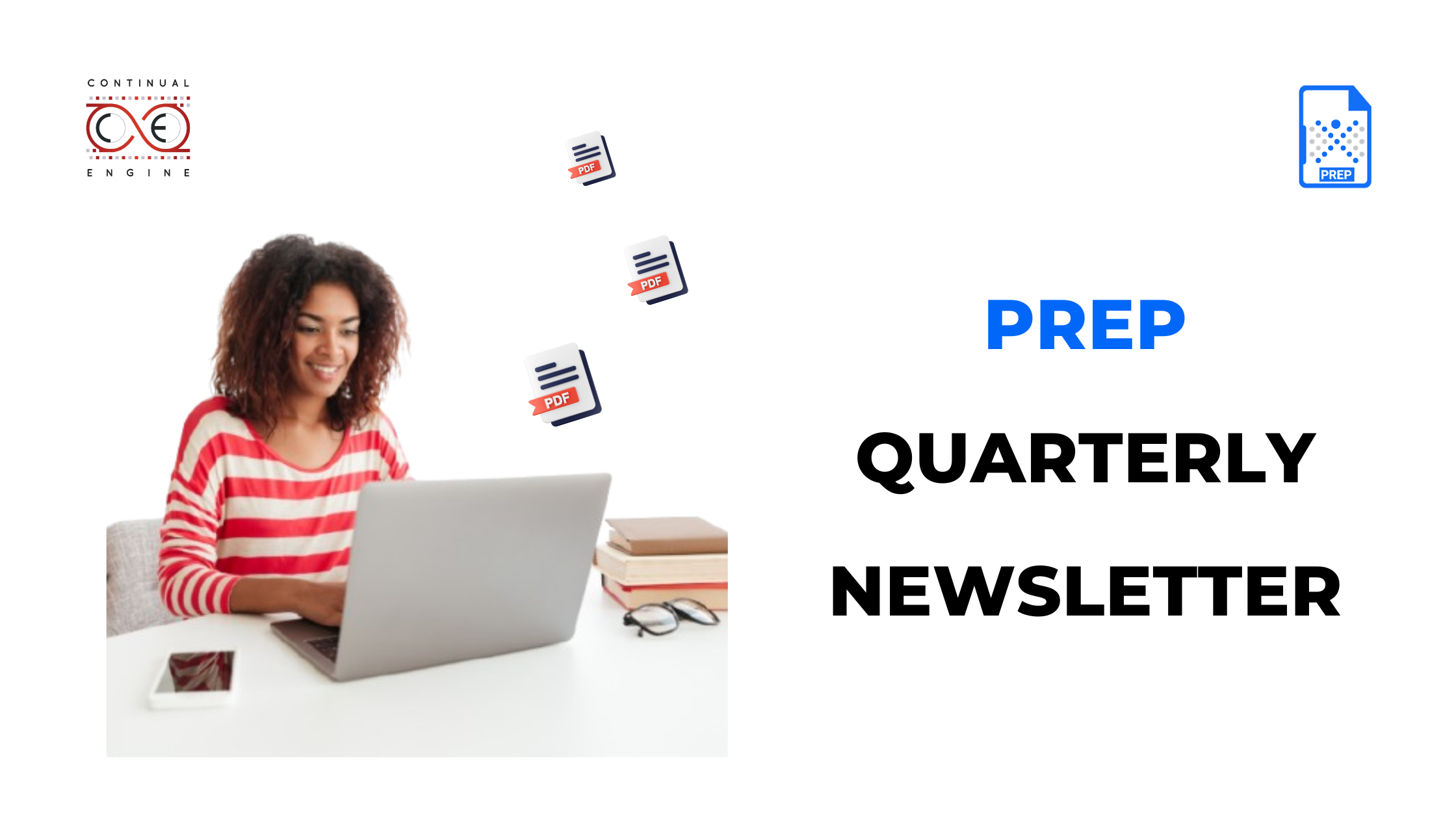As we move through mid-year, it’s the right time to revisit priorities and plan for the months ahead. In this July edition, we will feature an upcoming webinar packed with practical insights and live demos, share highlights from our latest blogs, and provide an essential update on why the new ADA Title II rule is something no organization can afford to ignore. Let’s get started!
Upcoming Event
Join Continual Engine’s Webinar on PDF Accessibility for Complex Content
As the Fall semester approaches and new ADA Title II regulations take effect, higher education institutions are under growing pressure to ensure all digital content is accessible, compliant, and inclusive.
Join us for a live webinar titled “Semester Kickoff: Make Your PDFs Accessible in Minutes Using PREP (AI/Automated PDF Remediation Platform)”, where we’ll walk you through how PREP simplifies document accessibility, especially for complex content like STEM materials, tables, TOCs, and lists.
Date: August 7, 2025
Time: 12 PM EST
Whether you’re already using PREP or just starting your accessibility journey, this session is perfect for you, where you will gain –
- A Live demo solving real accessibility challenges
- A look at how PREP handles complex elements in a PDF
- Best practices for new and advanced users
- Overview of admin tools, SSO, LMS integrations (Canvas, D2L Brightspace)
This session will help you get Fall-semester-ready – fast, compliant, and without the guesswork.
For any questions, contact us at contact@continualengine.com.
Latest Blogs
Easy Ways to Make Google Docs More Accessible for All Users
As a course creator, accessibility professional, or e-learning business, ensuring that your content is accessible to everyone is important. Google Docs is a powerful tool, but without proper formatting and settings, it can be challenging for some users to navigate. In this guide, we’ll explore simple ways to make your Google Docs more accessible, helping you create content that reaches all learners, regardless of their needs.
Google Slides Accessibility: A Guide to Inclusive Presentations
Accessibility in Google Slides means making your content work for every learner and enhancing the experience for all users, including those with disabilities. In this guide, we will walk you through actionable steps to create accessible Google Slides and how PREP can support broader document accessibility efforts.
How to Make Google Spreadsheets Accessible for Everyone?
If you create courses, develop e-learning content, or work in accessibility, chances are you’ve used Google Sheets to organize data, track progress, or collaborate with your team. But have you ever stopped to think if your spreadsheet is actually usable for everyone, including people with disabilities? It’s easy to assume that a clean layout and organized data are enough, but accessibility goes beyond just looking neat.
What Is a Tagged PDF & How to View Accessibility Tags on It?
Structure plays an important role in how information is accessed and understood. When it comes to PDFs, this structure is provided by tags. A tagged PDF is one where each element of the document, such as headings, paragraphs, lists, and images, is marked with specific tags. These tags help assistive technologies, like screen readers, to properly interpret and read the document to people with disabilities.
ADA Title II: Why the New Accessibility Rule Can’t Be Ignored
This is not just an IT issue; it’s a campus-wide responsibility. Institutions must act now, build sustainable accessibility programs, and ensure every document, form, and platform is compliant. Read more here.
You can also reach out to us at contact@continualengine.com to learn more.
